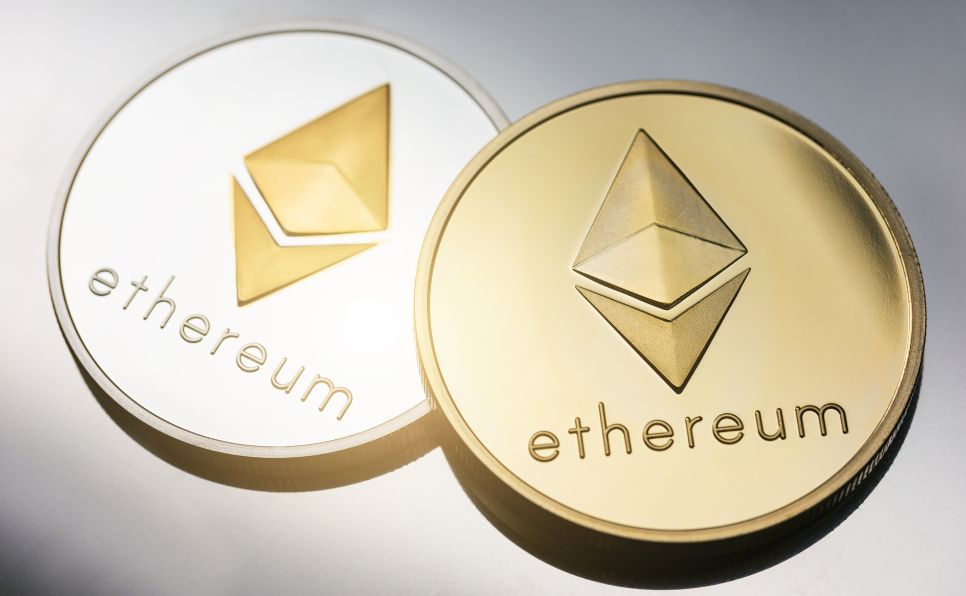By now, we’re likely all familiar with the cryptocurrency Bitcoin. But as other cryptocurrencies begin to gain traction, what do we need to know about them? Whether you’ve considered buying Ethereum in Miami or simply have not heard of this cryptocurrency, here are some frequently asked questions about Ethereum so you feel confident investing in it moving forward.
What Is It?
Ethereum is a decentralized blockchain platform that uses a cryptocurrency called Ether. It can be used for essentially any type of transaction or agreement. The word “decentralized” means that it utilizes peer-to-peer computer networks that cannot be disrupted by a central authority such as the government or a server administrator.
Ethereum is an open-source blockchain platform that enables the creation of decentralized applications (dApps) and smart contracts. It was proposed by Vitalik Buterin in 2013 and launched in 2015. Ethereum is different from Bitcoin in that it not only supports its native cryptocurrency, Ether (ETH), but also allows developers to build decentralized applications on top of its blockchain.
Decentralized Applications
Ethereum’s blockchain is designed to be more flexible and programmable than Bitcoin’s, with a focus on enabling developers to build and deploy decentralized applications. A decentralized application is a software application that runs on a distributed peer-to-peer network rather than a single computer or server. This makes them more secure, transparent, and resistant to censorship or manipulation.
With Ethereum, developers can create dApps that are decentralized, meaning they are not controlled by any single entity or authority. These dApps can range from decentralized finance (DeFi) platforms, digital identity systems, supply chain management systems, gaming platforms, and more.
For example, a developer could create a decentralized finance application on Ethereum that allows users to lend, borrow, or trade cryptocurrencies without the need for a centralized exchange or bank. This would enable individuals to have more control over their assets and avoid the risks associated with centralized systems.
Ethereum’s decentralized applications offer a more transparent, secure, and open alternative to traditional centralized systems, allowing for greater innovation and decentralization of power.
Smart Contracts
Smart contracts, which are self-executing contracts with the terms of the agreement between buyer and seller directly written into lines of code, can be programmed on Ethereum’s blockchain to execute automatically when certain conditions are met.
Think of a smart contract as a digital contract that is written in code and stored on the Ethereum blockchain. Once deployed, it is executed automatically without the need for intermediaries or third-party entities.
Smart contracts can be used for a wide range of purposes, such as facilitating the transfer of assets, managing digital identities, or even creating decentralized applications. They are also tamper-proof and cannot be altered once deployed on the blockchain, making them highly secure and reliable.
Non-Fungible Tokens
Ethereum also enables the creation of tokens, which are used to represent assets such as non-fungible tokens (NFTs). These tokens can be traded on cryptocurrency exchanges or used within dApps.
Ethereum’s consensus mechanism was previously based on proof-of-work (PoW), but now the platform has transitioned to a proof-of-stake (PoS) consensus mechanism. This change was intended to make the network more energy-efficient and scalable.
Overall, Ethereum has become a popular platform for developers to build decentralized applications, and its native cryptocurrency, Ether, has become one of the most widely traded cryptocurrencies on cryptocurrency exchanges.
How Does Ethereum Differ from Bitcoin?
Ethereum and Bitcoin are both cryptocurrencies, but they differ in several significant ways.
1, Purpose and Design: Bitcoin was designed as a digital currency for peer-to-peer transactions, while Ethereum was created as a decentralized platform for building and deploying decentralized applications (DApps) and smart contracts. Ethereum’s blockchain is more programmable than Bitcoin’s, enabling developers to create more complex applications that can execute a range of functions automatically.
2. Consensus Mechanism: Bitcoin’s consensus mechanism is based on proof-of-work (PoW), which involves solving complex mathematical problems to validate transactions and earn rewards. Ethereum’s consensus mechanism has been historically based on PoW, but it is in the process of transitioning to proof-of-stake (PoS), which involves validators putting up a stake (a deposit of ether) as collateral to secure the network and validate transactions.
3. Supply Limit: Bitcoin has a limited supply of 21 million coins, with 18.7 million coins already in circulation. Ethereum does not have a fixed supply limit, but instead has an annual issuance limit of 18 million ether per year.
4. Token Standards: While Bitcoin only supports its native cryptocurrency, Ethereum supports the creation of new tokens using its ERC-20 and ERC-721 token standards. These tokens can be used to represent a wide range of assets and are used within decentralized applications and smart contracts.
5. Development Community: Ethereum has a larger and more active development community than Bitcoin, with many developers building DApps and smart contracts on the Ethereum blockchain. These distinctions in processes set Ethereum apart from Bitcoin making them applicable to more markets for their technology.
Overall, while both Bitcoin and Ethereum are cryptocurrencies, they differ in their purpose and design, consensus mechanism, supply limit, token standards, and development community.
While Bitcoin is nothing more than a cryptocurrency, Ethereum is a ledger technology that can be used to build new programs. The technology behind Ethereum is more robust, as it allows for the building of decentralized applications on top of it.
Where Can I Store Ethereum?
Once you decide to buy Ethereum in Miami, you’ll need to find a secure place to store it. Digital wallets are a great way to ensure your cryptocurrencies are safe. We even offer a RockItCoin digital wallet that syncs well while you are using our machines.
Storing Ethereum in a digital wallet is relatively simple and involves the following steps:
- Choose a digital wallet: There are many types of digital wallets available, including desktop, mobile, web-based, and hardware wallets. It is important to choose a reputable wallet provider that is secure and user-friendly.
- Create a wallet: Once you have chosen a wallet provider, you will need to create a new wallet. This typically involves generating a new private key that will be used to access your wallet. Be sure to keep your private key in a safe place and do not share it with anyone.
- Fund your wallet: To store Ethereum in your wallet, you will need to purchase ETH. Consider using a RockItCoin Bitcoin ATM to make your purchase. Your wallet address will be a long string of characters and numbers that uniquely identifies your wallet on the Ethereum blockchain.
- Manage your wallet: Once your wallet is funded, you can manage your Ethereum holdings within the wallet. This may involve sending or receiving ETH, checking your balance, and viewing your transaction history.
- Keep your wallet secure: It is important to keep your wallet secure to prevent unauthorized access and theft. This may involve using strong passwords, enabling two-factor authentication, and keeping your private key or seed phrase in a safe place.
In summary, storing Ethereum in a digital wallet involves choosing a wallet provider, creating a wallet, funding the wallet with ETH, managing the wallet, and keeping the wallet secure. By following these steps, you can securely store your Ethereum and access it whenever you need it.
Do you have more questions about Ethereum and the proper ways to use it? Our professionals at RockItCoin are happy to help you with not only Ethereum, but cryptocurrencies like Bitcoin, Bitcoin Cash and Litecoin as well! Contact us today with your questions or concerns.




